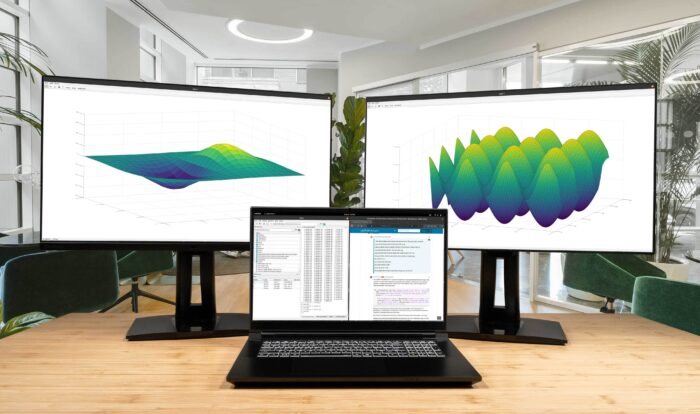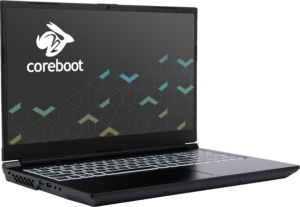System76 is already taking orders for two of the three new laptops it announced on Thursday, with the third expected to be ready for prime time within a few months. These are in addition to two other new laptops the company has already released since February.

I’ll be darned if the folks at System76 haven’t still been keeping themselves busy. I made a similar observation back in March, and it appears that they’ve doubled-down since.
The folks in Denver announced on Thursday that they’ve added two new lines of laptops to their portfolio, with a third coming soon. By itself, that would be impressive enough, but it comes on the heels of upgrading and reintroducing two of its legacy lines of laptops: Gazelle in February and Pangolin in March.
The two new lines are Serval WS, Adder WS, and the soon-to-be-released line is Bonobo.

“These new models fill a lot of our customer’s needs,” Adam Balla, System76’s media relations person told me in an email. “Starting with the Gazelle. It’s our most budget-friendly laptop with a dedicated Nvidia 3050 GPU. So, if you’re a student who likes to play games and needs a dedicated GPU to get work done then the Gazelle might be where you want to start. The Serval, Adder, and Oryx [upgraded in September] are for customers that may also need more powerful dedicated GPUs and additional features like DDR5 or additional storage.
The “WS” stands for “workstation,” which are generally regarded as desktops on steroids and might seem to be a funny thing to call a laptop. Here’s what System76 says about that, taken from a blog it posted on its website a while back:
Our third class of product is the insanely powerful WS class. These laptops and desktops are workstation-class products capable of intense computation, scientific calculations, and serious gaming. Designed for the most demanding users, they’re the absolute fastest, most powerful computers available.
System76, in case you don’t know, is famous for manufacturing servers, desktops, and laptops and shipping them with Pop!_OS, their in-house developed Linux distribution with its own desktop environment (currently based on GNOME, but soon to be scratch-made using the Rust programming language). Customers like its hardware because it’s made with Linux in mind, and because it can be ordered with a wide variety of options. That, and the fact that its customer service is pretty much second to none.
Adder’s and Serval’s Common Specs
The two new laptops are definitely not your father’s laptops. Why? Well, if an old 486 had more power than NASA used to put people on the moon, one of these laptops has more power than a roomful of rack-mounted 486s. In fact, alongside announcing their launch on Thursday, System76 came up with a new scheme for classifying their laptops that puts each laptop into one of two categories: “ultraportable” and “powerful.” The Darter Pro I use when I’m on the go (or when I get tired of my home office and want to work from another room in the house) falls in the “ultraportable” category. Adder and Serval are both “powerful.”
For both of these laptops, “powerful” starts with graphics, as they both ship with NVIDIA GeForce RTX 40 series cards. And while the default RAM for these machines isn’t anything to write home about (8GB Single Channel DDR5), at purchase you can up that to 16GB, 32GB, or 64GB Dual Channel DDR5.

Both also come with the same storage options. By default, that’s a PCIe Gen 3 NVMe SSD 250 GB “hard drive,” with several Gen 3 options at purchase up to 2 TB. For those who want the improved performance of Gen 4 HD, options are available between 250 GB and 4 TB. Although no secondary drive is included by default, there’s the option to add a second HD at purchase, with the same options as primary storage.
The machines also come with plenty of ports, which isn’t always the case with laptops. Owners of either machine will get two USB-A ports, two USB-, (one with Thunderbolt), a display port via USB-C, HDMI, a MicroSD port, a mini display port, and a headset jack. The Adder comes with a 1 Gbit Ethernet port, with 2.5 Gbit for the Serval.
Pop!_OS 22.04 LTS with full disk encryption is the default preinstalled operating system, with the option to have Ubuntu 22.04 LTS preinstalled instead. My advice here, of course, is to go with the default, even if you think of yourself as a dyed-in-the-wool Ubuntu fan.
Other Specs
Adder WS ships with your choice of a 15.6- or 17.3-inch full HD 1080p (144Hz refresh rate) matte display. By default, it comes with NVIDIA’s GeForce RTX 4050 with 2560 CUDA Cores, but is also available with your choice of RTX 4060 with 3072 CUDA Cores or GeForce RTX 4070 with 4608 CUDA Cores. The machine ships with a 13th Generation Intel Core processor, specifically i9-13900HX – up to 5.4 GHz – 36MB Cache – 8 P-cores and 16 E-cores).
Adder laptops are available now, with prices starting at $1,599.
With Serval WS, buyers also have the choice of a 15.6- or 17.3-inch screen. The 15.6-in screen is full HD, 1080p, with a refresh rate of 165Hz. The 17.3-inch screen is Ultra HD 4K with a 144Hz refresh rate. By default it’s equipped with NVIDIA’s GeForce RTX 4060 with 3072 CUDA Core, but is also available with GeForce RTX 4070 with 4608 CUDA Cores, and ships with a 13th Generation Intel Core processor, in this case i9-13900HX – up to 5.4 GHz – 36MB Cache – 8 P-cores and 16 E-cores.
Although System76 is taking orders for Serval now, it’s not scheduled to ship until mid-May. Prices for Serval start at $1,799.

In Thursday’s announcement, System76 mentioned another laptop that’s “coming soon” called Bonobo WS. Balla’s description of this one is intriguing. “The Bonobo is for the customer that wants a desktop experience on a laptop with a dedicated 4090 GPU, DDR5, and up to 12 TB of storage,” he said.
However, he was unable to hazard a guess on when potential customers will be able to order Bonobo.
“We’re working on the firmware for it,” he said. “Once that’s done it will go to QA for a round of testing. That process can take some time. So it’s hard to give an exact date.
I’ll be keeping an eye on that one, and will let you know more as soon as I know more.
Christine Hall has been a journalist since 1971. In 2001, she began writing a weekly consumer computer column and started covering Linux and FOSS in 2002 after making the switch to GNU/Linux. Follow her on Twitter: @BrideOfLinux







